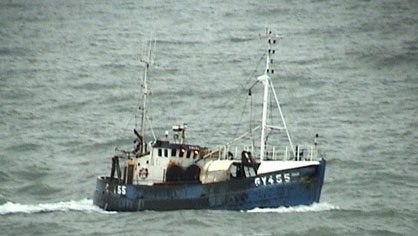2 February 2010
The decision to close the English whitefish fleet down for the last week of the effort year, to address fisheries administrations’ concerns about exceeding the overall UK allocation of Kwdays, was transparently unfair and pointless.
This was pointed out firmly but in measured terms to Defra officials at a London meeting, and later at a meeting between an NFFO delegation and Fisheries Minister Huw Irranca-Davies.
Crises can often generate opportunities and this may be a case in point. During the course of the extensive meeting with the Minister and his officials, it was agreed:
- that both the Federation and Defra shared the same goal of maximising flexibility within the effort control regime whilst respecting the overall limits imposed by the Cod Recovery Plan.
- that the arrangements to 31st January 2010, had come within 6 days of the annual allocation for the pressure point –TR1 gear in the North Sea, not a bad achievement
- that the 13% reduction (10% reduction + estimated 3% overshoot) for TR1 gear to February 2011 looks manageable with tightening up on transfers and gears using two gear types
- that this may become even more manageable when the scale of the buyback available for real time closures and other cod avoidance measures becomes known
- that the effort uptake in other areas and gear types gives less cause for concern
- to begin the new effort year with a rollover of the 2009 arrangements.
During February and throughout the coming year Defra and NFFO representatives will work closely to monitor effort uptake and to jointly agree remedial action if and when the need arises.
There will be no limits set for the month of February but any days used in February will count against each vessel’s final allocation. There will be no transfers in February.
The NFFO retains the view that effort control is an ineffectual inherently bureaucratic and economically damaging way to control fishing mortality. It sets in train perverse consequences that hinder rather than help cod recovery. Defra and the Federation share the view that effort control should be removed as soon as an opportunity occurs and replaced with targeted measures. The only thing that can be said with certainty about the current effort based cod recovery plan is that its economic impact is disproportionate to the very small direct impact that it has on cod mortality.

